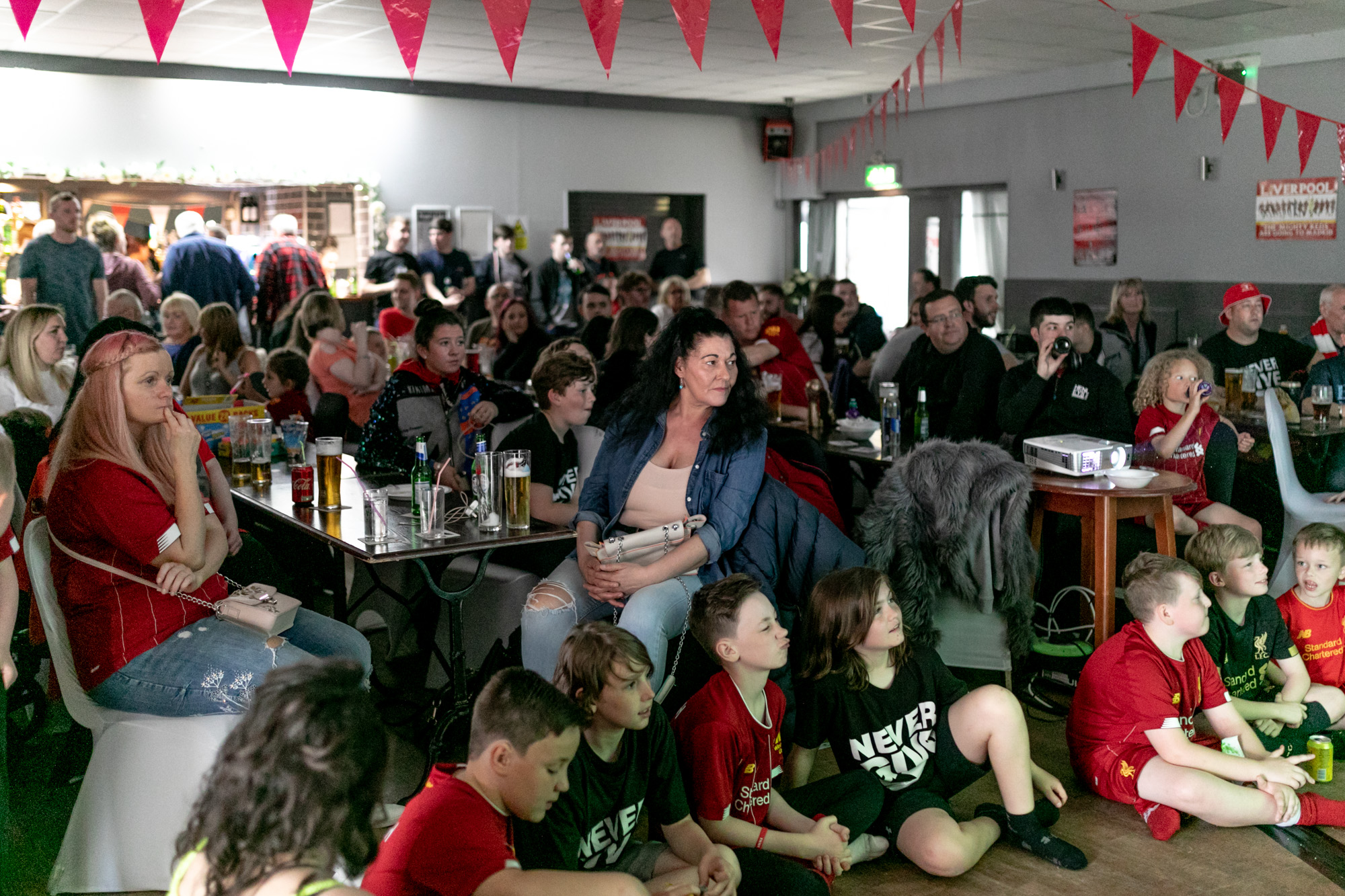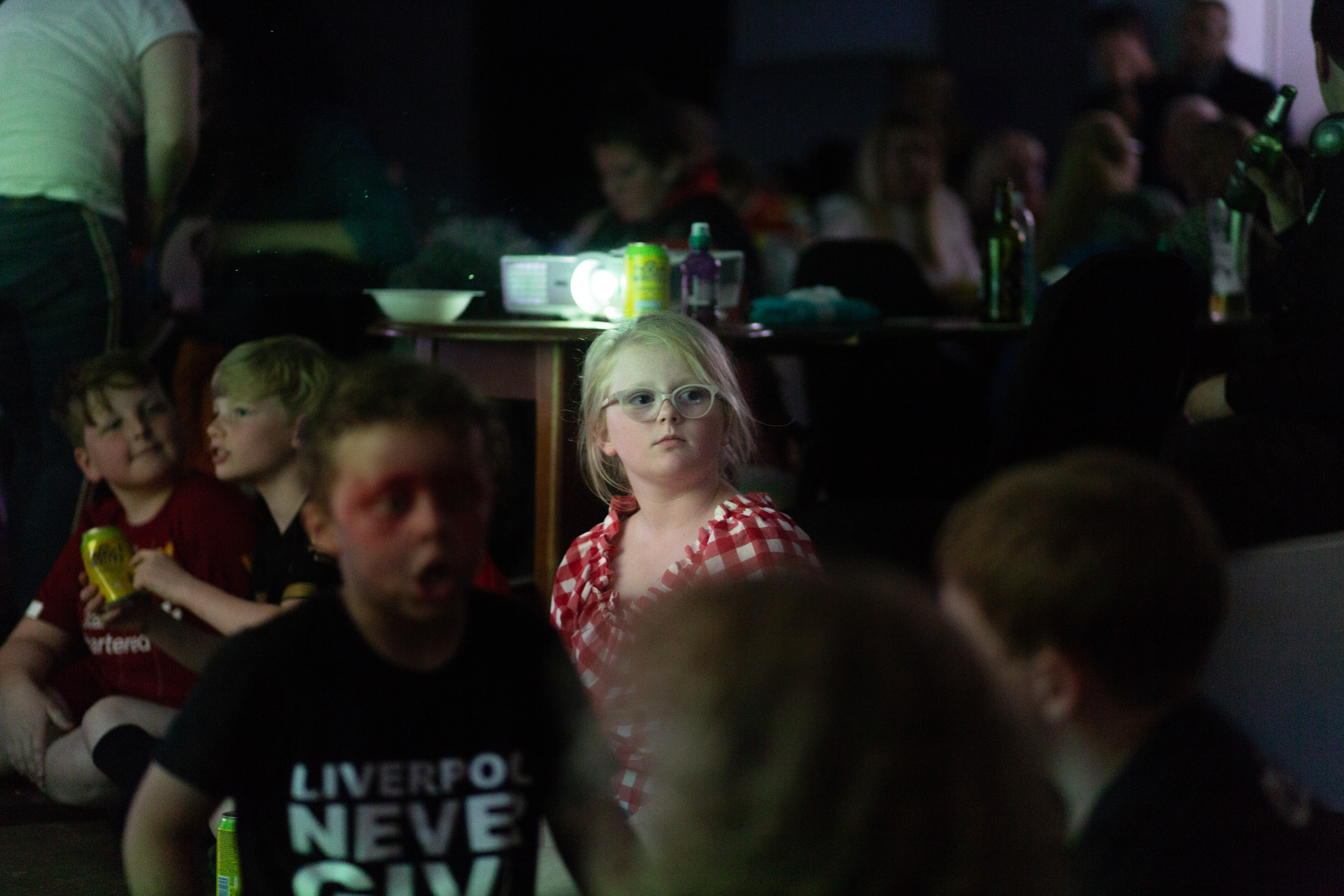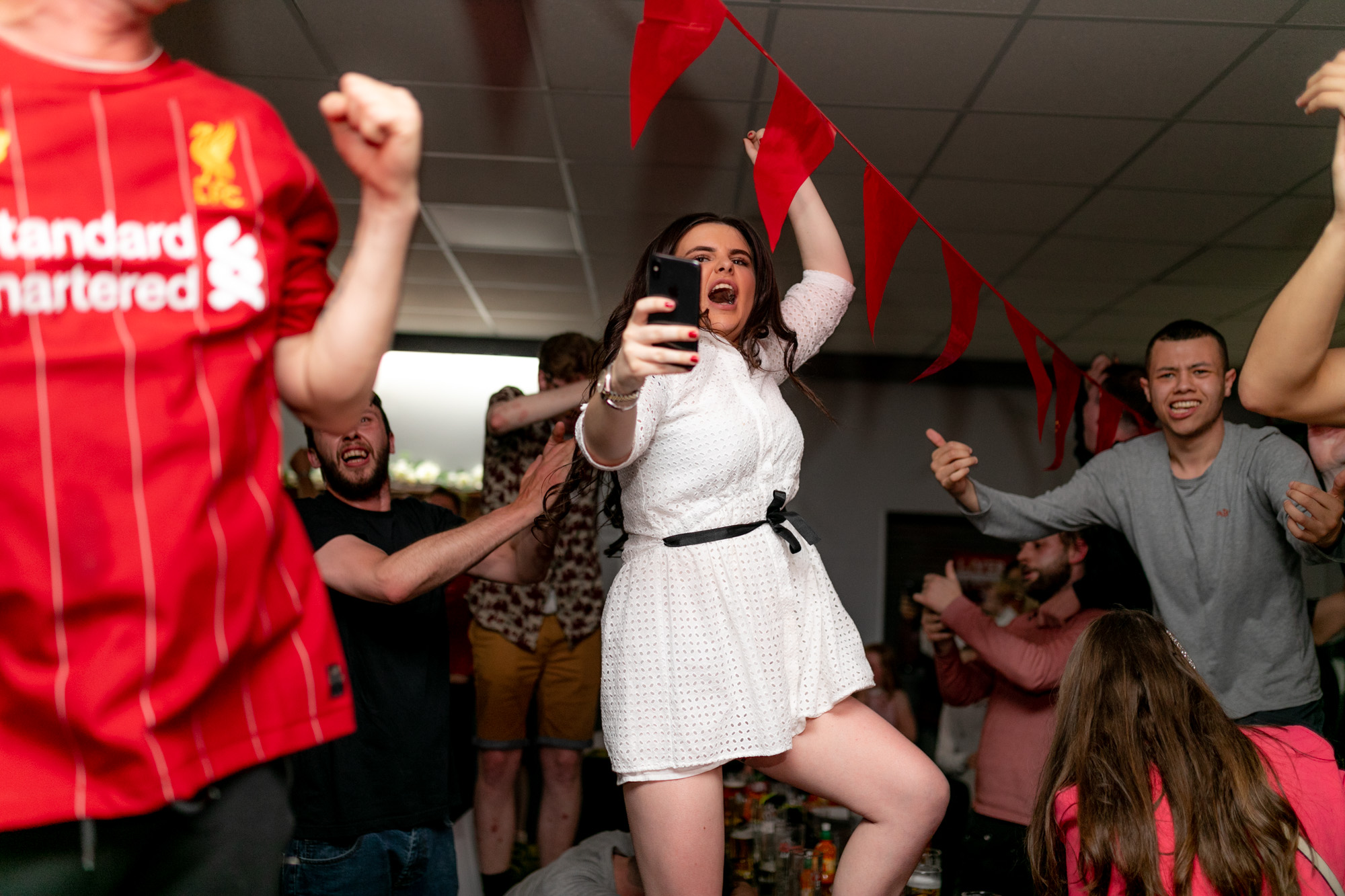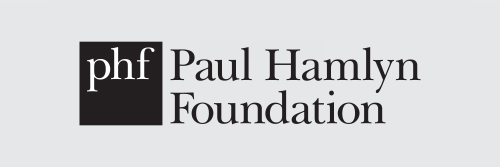


A Spotlight On… Lucy Hunter
Lucy Hunter is a photographer based between London and Liverpool, whose practice focuses on social engagement. University of Liverpool placement student Liam Griffin chats to Lucy about capturing human relationships, connections and the importance of community.
What made you take up photography?
I’ve always liked taking photographs, especially of the people in my life. With the rise of social media this provided me with a platform to share my work and I was getting positive feedback so I think this gave me the confidence to keep pursuing it. Around the time Instagram was getting popular, I was snapping pictures on my phone and then I got a decent SLR for my 30th birthday. This got me even more interested in photography and the workings of light, subject matter, composition etc. I started to get a little bit of paid work off the back of images I shared on Instagram and began to consider more seriously if I could make a career out of photography. I was working as a Probation Officer at the time but following privatisation, the service had changed a lot and I didn’t feel it was the work I had signed up for. I decided to quit my job and dedicate more time to Photography and making a go of it as a freelancer. I also decided to do an MA in Photojournalism and Documentary Photography at Westminster University.
It’s interesting that you got into photography off the back of Instagram’s rise in popularity.
Yeah, it’s funny because in my late teens I would take lots of photos of me and my friends (as many people do) but I used to spend hours and hours looking at the images and I realise now it was my way of engaging with the world, with people and holding on to those moments. When Instagram came along it served as a further extension of that feeling of being able to savour a point in time. I’m not as active on social media now but previously it was like my scrap book, a personal record – allowing my stories and progress to develop and evolve.
You began your photography journey in London and then moved up north to Liverpool – have you noticed your work changing as you began photographing different types of communities?
I don’t think so really, I just tend to make work on my doorstep. When I moved up here I was living in Kensington and made a project there. I like to make work that shows human relationships, connections and the importance of community. I think photography has enabled me to reach out to people and make links. It’s a real privilege to be able to then share people’s stories to a wider audience.
Your Ashington House project is a personal favourite of mine, the mixture of sounds, textures, voices and simultaneous shots paint a really dense and vivid image of the building – notably, unlike most of your work, it doesn’t include any imagery of people, just their voices – can you see yourself revisiting this type of work?
Thank you, that’s really kind of you. When I started out on that project I had no idea what the end result would be, I just began collecting. I’d take photographs, make sound recordings, interview my neighbours and collect rubber bands left by the postman! Gradually this film started to take shape, almost like a video sculpture. I wanted the viewer to have a real sense of what it felt like to be inside the building, so it needed to be multi-faceted and full of texture. The film actually explores the “non-spaces” that people pass through every day but don’t seem to pay as much attention to. I had set out to make work about the people who lived in the building but in the end my neighbours ended up helping me to make a film about our shared experiences of the building. I loved making that film and it really opened my eyes to other forms of documenting a story as well as how photography can be used to bring people together and make something.
I’ve been doing some work this year in a similar vein. I have been recording sounds, making images and writing LOTS. I was really lucky at the beginning of lock-down to have a tutorial with Marc Neville whose work and process I really admire. I was saying to him that I was struggling to make work and not feeling very inspired. He suggested that I should just write things down and not feel pressurised to take photographs. This process of writing has become a solid foundation for the work I’m making and has allowed me to keep up momentum even when not making images. It’s been useful to take a step back and focus more on the process, rather than outcome.
It reminds me a lot of Marc Isaac’s short-film: ‘lift’, was that an inspiration for the project?
Do you know what, so many people said that to me and told me to watch it while I was editing the film but I never did. I think at the time, I was worried I might end up making something too similar or it might change my outcome. However, I will track it down now and have a look.
You participated in Charity Bank’s ‘Follow The Money campaign’, what did that entail and how was it?
I was commissioned by Charity Bank to drive across the UK for a month visiting 38 of their charities and photographing the work that they do in England, Scotland and Wales. Starting on Dartmoor, going all the way up to the outer Hebrides and then back down. It was a pretty tight schedule but it was brilliant because I got to meet so many different people and visit so many places. The bank had an interactive map where the work was shared as I made my way across the UK. It was also this trip that introduced me to Liverpool and I think I moved here less than 6 months later.
In the past you’ve talked about how important connecting with other people is and how photography can help facilitate that. Do you think photography has a role to play during the lockdown?
I’ve been watching Grayson Perry’s TV show and he was recently talking about how art and being able to engage in something can really help in times of struggle. Making work allows us to articulate how we feel without having to say any words. I think we’ve all wanted something to lean on during this time. 2020 took on a different meaning for me and whilst COVID was a significant factor, it was somewhat side-lined. At the end of 2019, my dad was diagnosed with a brain tumour so my main focus was him, my family and how we might support one another. My family are in London and because of lockdown, I wasn’t able to see them as much as I would have liked but photography was so important in allowing us to share our days with one another. We were able to have this dialogue through picture making, a back and forth of selfies, sunrises and park walks. Then, once lockdown lifted a little and we could be together, being able to document our times as a family became even more important. My dad died in October last year and at times I have struggled to engage in creative pursuits, but when I have, I’ve found it to be uplifting and of great comfort. I think that photography can allow you to communicate and relate to those around you.
So you were using photography as a way to cope with your Dad’s health?
When you lose someone close to you, I think there’s something about wanting to just wrap yourself up in that person’s life, put on their coat. My dad absolutely loved music, he loved nature, he loved birds, he loved reading and he loved walking. I find myself wanting to engage even more in those things now. For now I am collecting again. Images, sounds and memories.
It’s different to my usual work because that’s normally in collaboration with other people. Lots of photographers do self-portraiture but I’m not putting the camera on myself as such, it’s kind of looking more at me and how I’m dealing with things. For a long time I didn’t pick up my camera and someone pointed out that perhaps that was the thing I needed to do. So it’s been a tough few months, but making work and engaging in the things that he loved is of great comfort.
You spent much of 2019 photographing people at the Kensington Fields Community Centre. Why did you choose that particular community centre and what did you find?
The community centre had not initially been the focus of my project but it quickly became apparent that I could make a more meaningful body of work if I were to focus all my attention in one space. In doing so I was able get to know the local people really well and they got to know me. It’s such a fantastic resource, hosting the locals and bringing everyone together. It’s a place that celebrates, teaches, supports and nurtures anyone that chooses to walk through the doors. I went to luncheons, bingo, after school clubs and a night of football that will go down in history. My camera helped me document these moments and share my view of the Kensington I love. This body of work is so important to me and I am so proud to be a part of that community. I had the opportunity to do some photography sessions at the after school club and I was blown away by what the children produced. It was also so fantastic to see quieter members of the group coming out of their shells and being so excited by the process and end result.
Do you have any plans to continue your work in Kensington?
That project came to an end last Summer, but I plan to go back and see everyone as soon as COVID allows. I am so grateful to everyone that took the time to speak to me, welcome me and allow me to photograph them.
I’m living in Toxteth now so I’d would love to make some socially engaged work here with more of a participatory element, making work with the community. I think Photography can be such a powerful tool, bringing people together and allowing them to share their view of the world and engage in conversations. I think more now than ever, people have realised the significance of community and how important sharing and supporting one another is.

